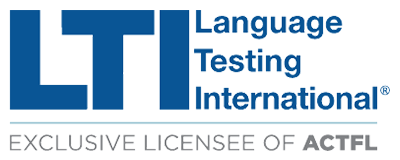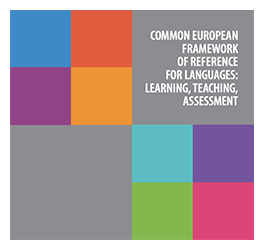If you’re in the process of updating or writing your resume/CV you may be wondering how to include your language skills. The number of bilinguals in the U.S. doubled from 1980 to 2018 and in Europe it’s common for the average person to speak 3 languages. This means, the ability to write and speak more than one language could prove useful in nearly any job, whether you’re a carpenter, teacher or doctor.
Speaking another language could even mean that you get the job you want instead of another candidate you’re competing against. Mentioning your language skills on your resume/CV in a noticeable and clear way might be as important as the skill itself. Still, you may have a few questions such as, how and when should you include information about your language skills? Or, are my language skills relevant to this job? Below, we will go over those issues and more.
How Proficient Should I Be In a Language To Mention It On My Resume/CV?

How Proficient Should I Be In a Language To Mention It On My Resume
This is probably the most important and difficult question to answer when considering whether or not to include a language skill in a resume/CV. How do you know if your language skill is refined enough to add to your professional skills?
The Short Answer
The short answer is that you should be able to use a second language with ease to mention it on your resume/CV. This doesn’t mean you need to be fluent, but you should not feel stressed or strained when conversing, reading and writing. If you need to regularly pause to think of words, or interrupt conversation to ask what a word means, then your language skills will probably only be used in dire situations.
The Long Answer:
The long answer is that language proficiency is not an exact science. Even native speakers have differing areas of strengths and weaknesses. One person may feel comfortable writing, while another person may feel comfortable listening. If this is true for native speakers, it is certainly true for people with a second or third language. As such, we must consider the 4 different ways languages are used when thinking about language proficiency.
- Listening: Deciphering between words and understanding what other people are saying when speaking aloud.
- Speaking: Speaking aloud in a language to communicate what you need to say.
- Reading: Reading a written language and knowing what it means.
- Writing: Writing in a language to accurately convey what you need to say.
It is also helpful to use a scale when trying to rate your language proficiency. Which scale you choose to use is up to you and may seem arbitrary. For now we will look at one scale in particular:
- Basic: This is equivalent to a 1st or 2nd language class in university. Someone at this level knows basic vocabulary and can use simple phrases with a concerted effort.
- Conversational: Someone at this level is able to understand basic conversation and describe basic details of their daily life. This person can express a few ideas beyond their most basic needs in normal conversation. Someone at this level may or may not have writing and reading skills to match their conversational skills.
- Proficient: While a person who is proficient does not know everything about their second language, they are skilled. This person is able to express most of what they need to say in written and spoken form. This person may still be unaware of native colloquialisms but generally uses the language with only some pauses.
- Fluent: Someone who exhibits fluency in a language has mastered listening, speaking, reading and writing. Additionally, fluency means that a person does not have to think before they speak. They may still have an accent, but generally experience no difficulty understanding others or expressing themselves. Someone who is fluent comprehends and communicates without consciously translating in their mind.
-
- Native: The term “native” is used to describe someone who has regularly used a language since a very young age. This means they will understand colloquialisms and be able to fluidly employ the language in writing and in conversation.
- Bilingual: This generally refers to a person who is fluent or native in two languages.
As mentioned above, you may be better at speaking than writing, or vice versa. Perhaps you consider yourself to be conversational when speaking and listening, but you’re not very comfortable writing and reading. That’s normal, and it’s something to honestly ask yourself.
There are many types of language proficiency. Levels of proficiency exist in the gray areas between the ones mentioned above. This can be true if you learned a language and then stopped using it for a while, or in any number of situations. The above parameters are simply tools that you can use in the way that suits you best.
Having said that, it will most likely only be appropriate to mention your language skills on your resume/CV if you are at least proficient in listening, speaking, reading and writing. However, this should be considered on a case by case basis.
How Do I Show My Language Proficiency On My Resume/CV?

How Do I Show My Language Proficiency On My Resume
Trying to decide how to convey your language proficiency on your resume/CV can be difficult. It depends on where your potential job is located and what type of job you are applying to.
Predetermined Proficiency Scales
One option is to use an assessment to demonstrate your language skills, like one of these:
- ILR: The Interagency Language Roundtable scale is used in the U.S. and generally rates language skills on a scale from 0-5.
- ACTFL: The American Council on the Teaching of Foreign Languages scale uses a more nuanced set of parameters.
- CEFR: The Common European Framework of Reference should be considered by people from the U.S. who are applying to jobs in Europe.
These are only going to be beneficial if the person reading your resume/CV is familiar with the scale. So, it is probably in your best interest to carefully read the job description for which you are applying to see if there is any mention of a particular proficiency scale. If the job mentions a certain scale, then you should assess your skills specifically using that scale.
Language Skills By Example
Otherwise it will be very helpful to your potential employer if you specifically demonstrate by example how you have used your language skills in your professional life. When explaining your skills, remember to always be honest and succinct.
For example, a former customer service representative might say “Regularly conducted customer service phone calls in Spanish.” A former teacher could say “Regularly conversed with parents in Arabic regarding student behavior and schoolwork.” These are only two very specific examples and of course the array of potential scenarios is endless.
Framing your skills with a specific scenario is advantageous. Mentally, it allows the person reading your resume/CV to envision exactly how you actually used the language. Even if you decide to use one of the previously mentioned scales, this could be additionally handy.
Just Say It
If you haven’t used a second language in a previous job and you don’t think one of the assessments mentioned above will be relevant, you can just plainly state your ability. For example, you might simply add a bullet point in the “skills” section of your resume/CV which reads “Mandarin Language Skills: Reading, writing and conversing in Mandarin at an intermediate level.” Or, if the format of your resume/CV is more brief you could say “Mandarin (Proficient)”.
Should I List My Language Skills On My Resume/CV?

Should I List My Language Skills On My Resume/CV?
Many people will say this depends on whether or not your language skills will be useful in your job. However, there is no perfect answer. As a general rule it only makes sense to mention your language skill if it is relevant to the job for which you are applying. That is, if you plan to dedicate a large part of your resume/CV to showcasing your language skills. As discussed before, there are ways to mention your language skills more subtly.
There’s a good possibility that there are facets of the potential job which you cannot foresee or imagine. Any carpenter or chef can attest to the fact that multiple languages are often spoken in construction sites and kitchens. The fact of the matter is, your language skills may be useful in a way that cannot be anticipated. Due to this fact, it is conducive to your job search to find a way to mention your skills, even if they don’t seem immediately relevant. A simple bullet point is enough! Just make sure to be honest and brief. At the very least you will demonstrate your intelligence and come across as more interesting.





